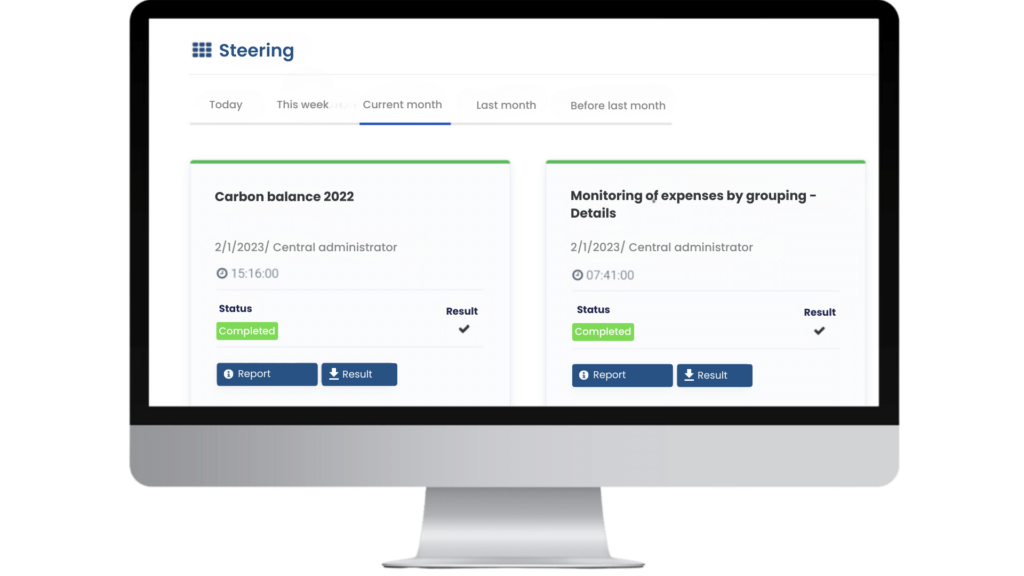After several years of restraint, business travel is enjoying a clear upturn. But this recovery does not mean a return to the old model. In 2025, large companies are approaching business travel from a new angle: tighter budgetary control, social responsibility, and high expectations in terms of efficiency and employee experience.
The travel function is becoming a strategic position, at the crossroads of financial, HR and environmental issues. Faced with this growing complexity, the digitalisation of Travel & Expense processes is becoming a key driver of overall performance.
1. The growing importance of travel in budgets
Between inflation on airfares (+20% between 2022 and 2024) and pressure on business accommodation, the average cost per trip has risen sharply. In large organisations, this means that budgets have risen sharply, sometimes exceeding pre-Covid levels.
In this context, visibility of expenditure from the commitment phase is essential. This implies better structuring of flows with :
- digitised mission orders,
- a contextualised travel policy,
- advanced settings,
- seamless integration with existing systems.
A platform like Vertical Travel can integrate or complement the existing environment through API connections or an all-in-one approach.
2. Hidden costs and indirect productivity: a source that is often ignored
In addition to fares, business travel generates numerous indirect costs : time spent booking, justifying and entering expenses. On the employee side, this is a significant waste of time; on the management side, it’s a burden for HR, managers and accountants.
Digitising the entire cycle (travel order, booking, expense claim, reimbursement) means that low-value tasks can be automated, errors reduced and approvals accelerated. Automatic recognition of receipts, intelligent matching between expenses and missions, mobile capture and automated reimbursements become essential functions.
3. Real-time management : responsiveness and decision-making
In an uncertain environment, management expect tools capable of providing a consolidated view of commitments and expenditure. Business travel data must be usable, in real time, for effective management.
Dynamic dashboards, personalised reporting, automatic categorisation and alerts in the event of budgetary deviations enable decision-makers to stay in control and continuously adjust their travel strategy. Artificial intelligence enhances these capabilities.
4. Compliance, audits, CSR : a multi-dimensional requirement
Compliance is a key issue for large companies :
- compliance with internal policies,
- URSSAF checks,
- the fight against fraud,
- tax requirements.
At the same time, CSR expectations mean that the carbon footprint of journeys must be better tracked, more virtuous modes of transport must be encouraged, and ecological criteria must be factored into trade-offs.
Time-stamped audit trail, carbon footprint monitoring, enhanced accounting exports and compliance alerts have become expected standards.

Monitoring carbon emissions
Automatically calculate the CO₂ footprint of each pro.
5. Employee experience : simplifying without relinquishing control
Employees expect simple, fast, intuitive tools. If they perceive travel management as a waste of time, they will look for ways around it (bookings made outside the tool, missing receipts, delays in declarations).
A unified mobile experience, where everything is centralised (request, validation, booking, reimbursement), reduces irritants, improves adoption and reinforces compliance with the rules. A responsive interface, guided data entry and automatic reminders reconcile user comfort with the need for control.
In 2025, the ‘travel’ function will become a performance driver
Companies that want to control expenditure while improving the experience of their employees need to think of the entire travel cycle as a whole: from travel policy to post-mission analysis.
In 2025, financial issues can no longer be separated from human and environmental issues. A global, connected, controlled and user-oriented approach is the key to transforming budget constraints into opportunities for sustainable performance. By relying on interoperable or unified solutions such as Vertical Travel, large companies can embark on this transformation at their own pace, depending on their level of maturity.








